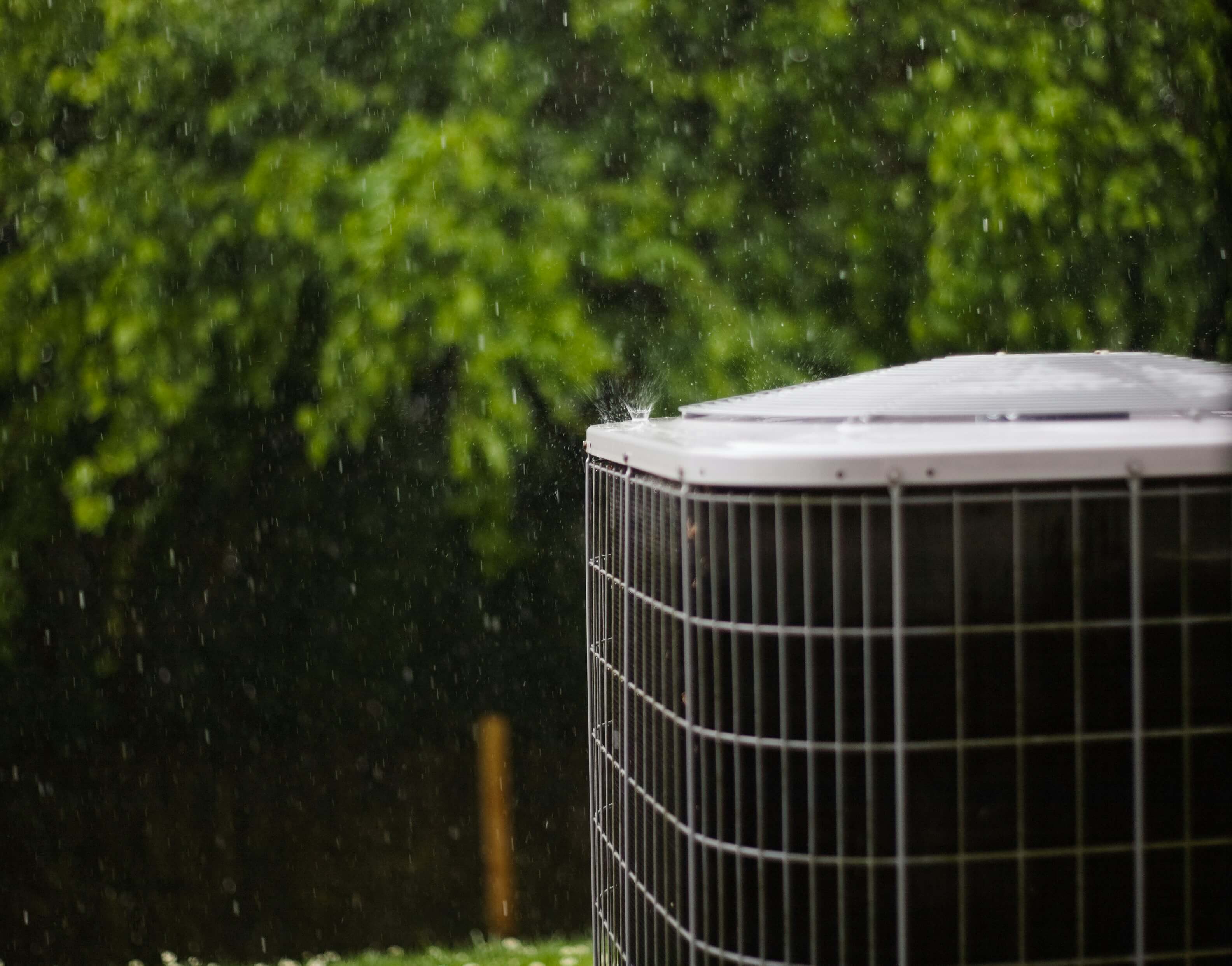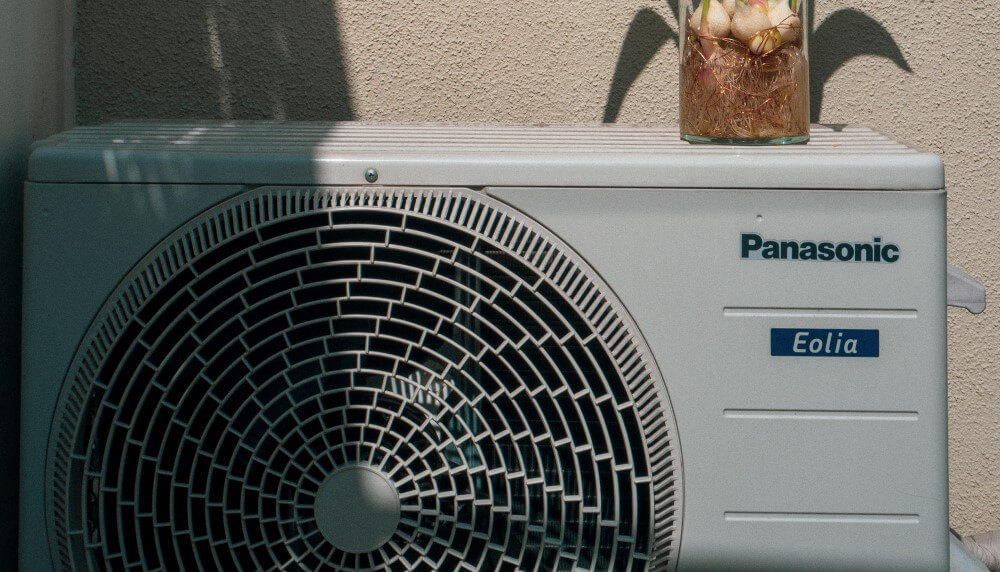

HVAC

Average Cost: $1,500 - $10,500
Here’s an in-depth review of Panasonic’s air conditioning systems, including available models, pricing, key features, customer feedback, and how Panasonic stacks up against top HVAC brands like Mitsubishi, LG, and Daikin.
Our Verdict: Panasonic is a great option for homeowners looking for quiet, energy-efficient cooling systems with smart features and long-term reliability. However, they may not be the best fit for budget-focused buyers or those in areas with limited access to qualified Panasonic installers.
Panasonic has been a trusted name in the air conditioning industry since 1958, evolving from a manufacturer of basic room coolers to a global leader in advanced HVAC technology. The company’s mission centers on delivering energy-efficient, reliable comfort through cutting-edge innovation. Today, Panasonic offers a wide range of climate control solutions, including ductless mini-split units, heat pumps, and sophisticated Variable Refrigerant Flow (VRF) systems.
Panasonic operates on a global scale, with products available throughout the United States and many international markets. A key milestone in its growth came in 2009 with the acquisition of Sanyo Electric Co., allowing Panasonic to expand its offerings with Sanyo-branded ductless systems. This move strengthened its position in the ductless HVAC market and provided consumers with even more efficient and customizable air conditioning options.
![]()
| Best for | Top Model | Cost Installed | Standout Feature | Warranty |
|---|---|---|---|---|
| Energy-efficient cooling and smart technology | ClimaPure XE Series | $1,500 – $10,500 | Inverter technology with nanoe™ X air purification and Wi-Fi control | 5 to 12 years depending on product and installer |
Panasonic is a standout in the HVAC world, known for combining innovation, energy efficiency, and long-term reliability. With over 60 years in the industry, the brand has built a loyal following by delivering high-performance systems that focus on both comfort and sustainability.
Homeowners love Panasonic air conditioners for their energy-saving inverter technology, which automatically adjusts output based on demand. This helps lower power consumption and reduces utility bills over time. The units also run quietly — perfect for bedrooms, nurseries, and other quiet spaces.
Many Panasonic models are smart home-ready, offering app-based controls and compatibility with popular automation systems. With a reputation for durability and quality, Panasonic is a smart choice for anyone looking for dependable, modern cooling.
To determine whether Panasonic air conditioners suit your home, it’s crucial to explore their benefits and limitations. First, these units shine in energy efficiency, operate quietly, and boast impressive durability. However, potential challenges exist, including higher initial costs and the difficulty of finding qualified technicians. In the following section, we will outline the key pros and cons to assist you in making an informed decision.
When it comes to HVAC solutions, Panasonic stands out with a diverse range of products designed to meet various heating and cooling needs. In particular, the company offers everything from versatile mini-split systems to advanced Variable Refrigerant Flow (VRF) technology. As a result, Panasonic provides options that are suitable for both residential and commercial applications. Now, let’s explore the key offerings that make Panasonic a reliable choice for homeowners and businesses alike.

Panasonic air conditioners receive mixed reviews. While some customers praise the brand’s cooling ability and quiet operation, others report noisy units with difficult-to-find parts.
This is the 6th Panasonic Split System that I have had installed in various properties and the 3rd in my home. Three have been installed in family members’ home after my recommendation. I have never had any issues with any of the units. Easy to use, nice design and always cold in the summer and warm in the winter. Mine is a 7.1KW unit and it does the job in my 2 bedroom unit. Now with Wifi, I can turn it on when I’m out and about, so my place is nice and frosty when I arrive home. Do not hesitate in purchasing a Panasonic product. Highly recommended. – Panasonic website review
Recently installed, with no extra charge for Wi-Fi control. 5 year warranty, to back proven reliability. Wi-Fi was easy to set up. The nanoe X air purification system has to be one of outstanding feature if you have asthma or allergies . – Panasonic website review
The cost of Panasonic air conditioning systems varies based on the unit type and installation complexity:
| System Type | Unit Cost | Installation Cost | Total Estimated Cost |
|---|---|---|---|
| Ductless Mini-Split Heat Pump | $1,000 - $3,500 | $500 - $1,500 | $1,500 - $5,000 |
| Air Source Heat Pump | $3,500 - $7,500 | $500 - $3,000 | $4,000 - $10,500 |
Panasonic holds its own against top HVAC competitors like Mitsubishi Electric, LG, and Daikin by offering a strong blend of performance, value, and smart features. Compared to Mitsubishi, Panasonic systems are generally more affordable while still delivering excellent energy efficiency—though Mitsubishi has an edge in extreme cold weather performance. LG air conditioners tend to be more budget-friendly and stylish, but Panasonic often surpasses them in durability and system flexibility. When compared to Daikin, a leader in high-end VRF systems, Panasonic stands out for its more intuitive controls and slightly lower price points, making it a smart option for homeowners who want advanced features without a steep learning curve.
Panasonic offers a range of energy-efficient systems, including single-zone and multi-zone ductless mini-split heat pumps as well as Variable Refrigerant Flow (VRF) systems. These models are designed to suit everything from small rooms to large multi-room homes or light commercial spaces.
Yes, Panasonic systems use inverter technology to adjust cooling output based on demand, which helps lower energy consumption and reduce utility bills. Many models are ENERGY STAR® certified and use eco-friendly R32 refrigerant for improved environmental performance.
Many Panasonic air conditioners include built-in Wi-Fi and are compatible with the Panasonic Comfort Cloud app, allowing homeowners to control their system remotely. Some models also integrate with smart home platforms for added convenience and automation.
Panasonic is a strong choice for homeowners who want reliable, energy-efficient cooling backed by smart technology and quiet performance. Its systems are built to last and include advanced features like inverter technology, air purification, and app-based controls. While the upfront cost can be higher than some competitors and finding a certified technician may take extra effort, the long-term value, low maintenance needs, and flexible system options make Panasonic a worthwhile investment. Panasonic is best suited for homeowners who want a high-quality system for a single room, multi-zone setup, or even a whole-home solution, especially those who prioritize comfort, innovation, and sustainability over initial price.
Read real homeowner reviews, explore qualifications, and view promotions. Modernize makes it easy to browse professionals and find one that will be perfect for your project.